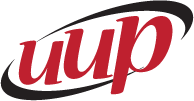UUP: Use SUNY students, staff, campuses to speed up vaccinations
The State University of New York—its students, faculty and staff and facilities—should be immediately used to rapidly administer the millions of COVID-19 vaccine doses New Yorkers will need to be protected from the pandemic ravaging the U.S.
Frederick E. Kowal, president of United University Professions, which represents more than 37,000 SUNY employees at SUNY’s four-year campuses, said that SUNY medical students and medical residents could work together to form volunteer SUNY “Vaccination Brigades.”
SUNY students studying to become pharmacists, ophthalmologists, emergency medical technicians, nurses, veterinarians and other medical professionals would also be encouraged to volunteer for the brigades. The student-led brigades would be part of the teams that would deliver vaccinations at SUNY’s 64 campuses.
“SUNY can be a major player in ramping up vaccinations across the state,” said Kowal, who leads America’s largest higher education union. “We’ve got thousands of medical and pre-med students who can help with vaccinations, and thousands of non-medical students who could assist with support.”
“The situation is changing rapidly and the numbers of those with COVID-19 are rising across the state,” he continued. “Experts are calling for aggressive action and we couldn’t agree more.”
Kowal pointed to Dr. Peter Hotez, a vaccine expert at Houston’s Baylor College of Medicine, who told Politico.com that the only way to make President-elect Joe Biden’s pledge to deliver 100 million vaccination doses in his first 100 days in office is to start vaccinating as many people as possible—in tents in outdoor sports stadiums or places with ample parking.
In a Jan. 3 op-ed in The Washington Post, Dr. Ashish Jha, dean of Brown University’s School of Public Health, calls for the delay of the second dose of the COVID-19 vaccine in favor of vaccinating as many people as possible to save lives. Jha said he expects the more contagious strain of coronavirus, first detected in the U.K. and now in the U.S., will become the dominant strain of the virus in this country over the next few months.
“We need to get as many vaccinations into as many arms as possible as quickly as possible,” Kowal said. “The pandemic is raging and the more contagious variant of coronavirus is in New York. We need to take immediate action. From infrastructure to people power, SUNY has many elements already in place to rapidly assemble and deploy vaccination brigades to inoculate as many people as possible.”
SUNY has about 8,500 students in medical schools and medical programs at SUNY’s academic medical centers and SUNY’s College of Optometry. This total does not include students in SUNY veterinary, dentistry and nursing programs.
Also, volunteer opportunities would be available for thousands of non-medical students to help with the massive undertaking of distributing and tracking the vaccine doses. Students in SUNY’s emergency medicine programs—training to become paramedics and EMTs—could be asked to transport people to and from vaccination sites.
Kowal said SUNY facilities—gymnasiums, lecture halls, athletic fields, and parking lots—could easily be used as staging areas to vaccinate thousands of people each day.
Setting up vaccination clinics at rural campuses such as Potsdam, Canton, Alfred and Cortland could be instrumental in getting the vaccine to people in outlying areas. SUNY’s university centers in Albany, Binghamton and Stony Brook; and downtown and metro-area campuses—in places like Syracuse, Plattsburgh, and Farmingdale—are situated near underserved and underrepresented communities and could serve as vaccination centers for those populations.
“This is a Herculean task and SUNY students, faculty, staff and facilities can and should be utilized to accomplish it,” he said.
Kowal suggested that students who volunteer for the SUNY vaccination brigades should receive recognition for their efforts—which could range from course credit to reducing or even eliminating tuition costs for a semester or a year.
“These students will be going to war and they should be rewarded for it,” said Kowal. “Getting these vaccinations into the arms of New Yorkers is literally a matter of life and death. And much like returning GIs benefited from Franklin Delano Roosevelt’s groundbreaking GI Bill, these students should have their educations paid for by the state’s residents as we will all be safer because of their efforts.”
Kowal said that UUP looks forward to working with the governor’s office and SUNY Chancellor Jim Malatras to advance the vaccination brigades initiative.
UUP is the nation’s largest higher education union, with more than 42,000 academic and professional faculty and retirees. UUP members work at 29 New York state-operated campuses, including SUNY’s public teaching hospitals and health science centers in Brooklyn, Long Island and Syracuse. It is an affiliate of NYSUT, the American Federation of Teachers, the National Education Association, and the
AFL-CIO.
